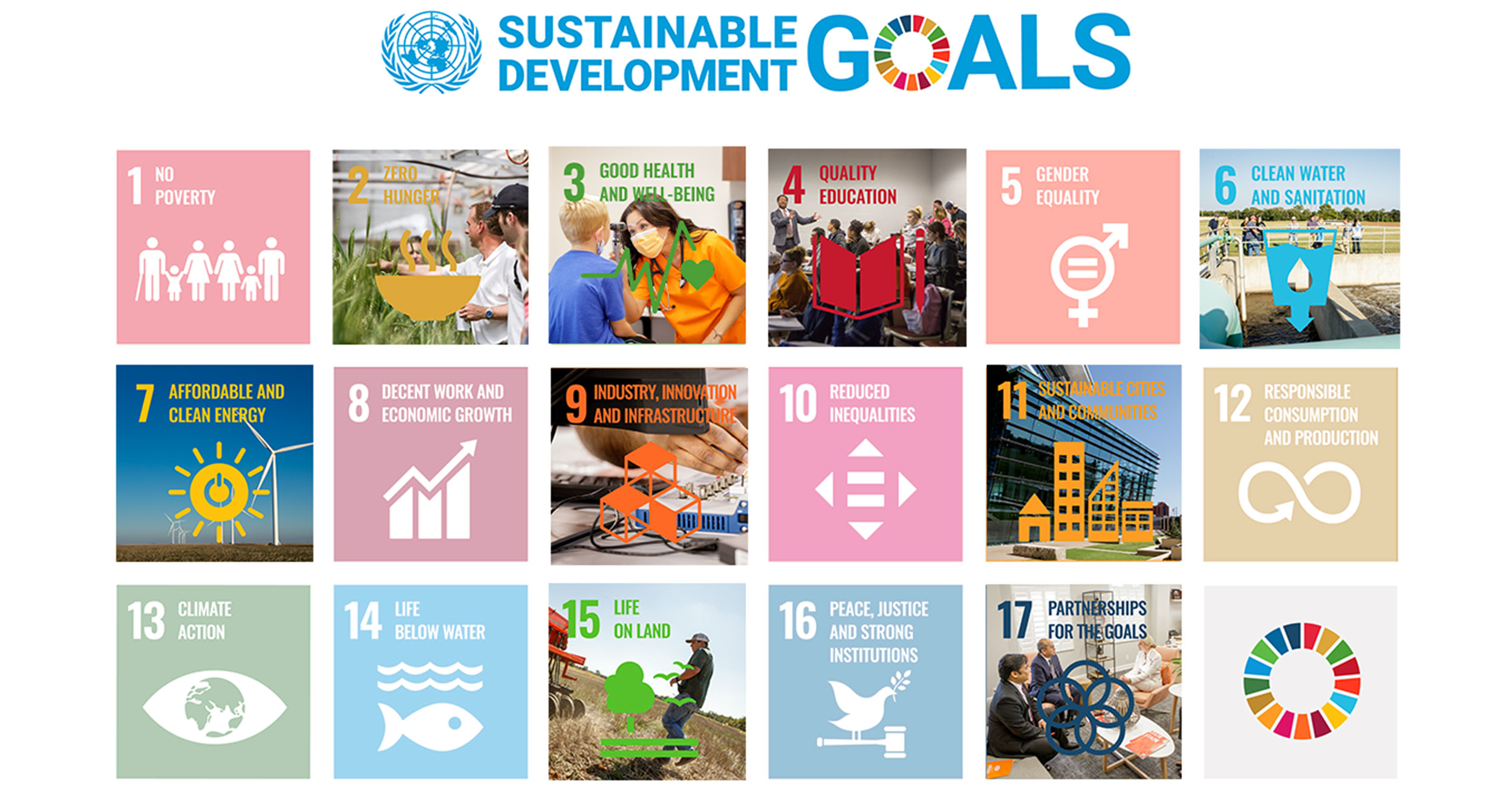
Success in Sustainability: OSU ranked top 100 internationally for UN Sustainable Development Goals
Thursday, June 1, 2023
Media Contact: Kelli Norton | Communication Specialist | 405-744-5496 | kelli.norton@okstate.edu
Oklahoma State University has been ranked among the top global universities for its
contributions to the United Nations’ Sustainable Development Goals (SDGs). For a third
year in a row, OSU has outranked much larger universities across the U.S. and worldwide,
with its overall rank of 72 among over 1,600 global universities.
The rankings come from the fifth edition of the Times Higher Education Impact Rankings , which assesses the ways in which universities’ research, stewardship, outreach and
teaching contribute to global sustainability. Times Higher Education is a leading publisher of education related news, and developed the Impact rankings
in 2019, to better reflect the role that universities can play in addressing critical
global needs. OSU has ranked in the top 100 universities globally in every year that
it has participated in the ranking process.
OSU ranked seventh internationally in Zero Hunger (SDG 2), 63rd internationally in
Clean Water and Sanitation (SDG 6), 72nd internationally in Sustainable Cities and
Communities (SDG 11) and 41st internationally in partnerships for the goals (SDG17).
The rankings are based upon the educational, research, and outreach elements of the
university.
“The university's strategy is focused on using the expertise of our faculty, staff,
and students to address the world's most pressing challenges, many of which are reflected
in the UN Sustainable Development Goals.” said Dr. Jeanette Mendez, OSU senior vice
president and provost. “We approach these challenges by integrating teaching, research,
and outreach/extension, encouraging transdisciplinary efforts that engage people from
across the OSU system.”
OSU’s highest ranking is in Zero Hunger, or global food security, where it placed
7th globally.
“Our scientists focus on research, extension and academic programs that serve the
needs of Oklahoma agriculture, food and natural resource sectors,” said Dr. Thomas
Coon, vice president of Agricultural Sciences and Natural Resources and dean of the
Ferguson College of Agriculture. “Yet their impacts reach well beyond Oklahoma’s borders.
It is heartening to see their impact ranking for food security continue to be in the
top 10 universities evaluated from around the world.”
OSU’s commitment to international development began in the 1950s, when then-President
Henry G. Bennett took a leave of absence from the university to head the Point IV
program, an agency developed to develop technological capacity in foreign nations.
Over the decades, the university took on a number of significant projects, including
creating an agricultural university and high school in Ethiopia, development projects
in Thailand, Brazil, and Bangladesh, and other projects around the world.
"As a land-grant university, it’s our mission to solve society’s most pressing problems,"
OSU President Kayse Shrum said. "In October of last year, we unveiled a systemwide
university strategy that focuses on the intersection of our research strengths and
society’s grand challenges. Our rankings in the UN Sustainable Development Goals are
a testament to the work of our faculty, staff and students to address these needs
in impactful ways."
OSU’s current strategic plan calls for the university community to focus on four interdisciplinary
“priority areas” — innovating to nourish the world, leading in aerospace innovation
and application, enhancing human and animal health (One Health), and powering a growing
world population sustainably and responsibly.
OSU provided evidence of its sustainability commitment to nine goals with 168 separate
pieces of evidence. Below are the areas upon which OSU's ranking are based:
SDG 2- Zero Hunger
7th internationally
The zero hunger ranking measures universities’ research on hunger, their teaching on food sustainability, and their dedication to ending food waste and world hunger on campus and in local communities.
SDG 6 - Clean Water and Sanitation
63rd internationally
The clean water and sanitation ranking measures universities’ research related to water, their water usage and their commitment to ensuring good water management in the broader community.
SDG 11 - Sustainable Cities and Communities
72nd internationally
The sustainable cities and communities ranking measures universities’ research on sustainability, their role as custodians of arts and heritage and their internal approaches to sustainability.
SDG 17- Partnership for the Goals
41st internationally
The partnerships for the goals ranking look at the broader ways universities support the SDGs through collaboration with other countries, promotion of best practices and publication of data.
Story By: Kelli Leech | Graduate Assistant | kelli.leech@okstate.edu
